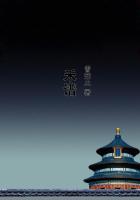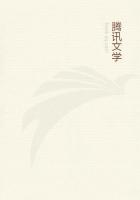The great Zola, or call him the immense Zola, was the prime mover in the attack upon the masters of the Romanticistic school; but he lived to own that he had fought a losing fight, and there are some proofs that he was right. The Realists, who were undoubtedly the masters of fiction in their passing generation, and who prevailed not only in France, but in Russia, in Scandinavia, in Spain, in Portugal, were overborne in all Anglo-Saxon countries by the innumerable hosts of Romanticism, who to this day possess the land; though still, whenever a young novelist does work instantly recognizable for its truth and beauty among us, he is seen and felt to have wrought in the spirit of Realism. Not even yet, however, does the average critic recognize this, and such lesson as the "Editor's Study" assumed to teach remains here in all its essentials for his improvement.
Month after month for the six years in which the "Editor's Study"
continued in the keeping of its first occupant, its lesson was more or less stormily delivered, to the exclusion, for the greater part, of other prophecy, but it has not been found well to keep the tempestuous manner along with the fulminant matter in this volume. When the author came to revise the material, he found sins against taste which his zeal for righteousness could not suffice to atone for. He did not hesitate to omit the proofs of these, and so far to make himself not only a precept, but an example in criticism. He hopes that in other and slighter things he has bettered his own instruction, and that in form and in fact the book is altogether less crude and less rude than the papers from which it has here been a second time evolved.
The papers, as they appeared from month to month, were not the product of those unities of time and place which were the happy conditioning of 'My Literary Passions.' They could not have been written in quite so many places as times, but they enjoyed a comparable variety of origin.
Beginning in Boston, they were continued in a Boston suburb, on the shores of Lake George, in a Western New York health resort, in Buffalo, in Nahant; once, twice, and thrice in New York, with reversions to Boston, and summer excursions to the hills and waters of New England, until it seemed that their author had at last said his say, and he voluntarily lapsed into silence with the applause of friends and enemies alike.
The papers had made him more of the last than of the first, but not as still appears to him with greater reason. At moments his deliverances seemed to stir people of different minds to fury in two continents, so far as they were English-speaking, and on the coasts of the seven seas;
and some of these came back at him with such violent personalities as it is his satisfaction to remember that he never indulged in his attacks upon their theories of criticism and fiction. His opinions were always impersonal; and now as their manner rather than their make has been slightly tempered, it may surprise the belated reader to learn that it was the belief of one English critic that their author had "placed himself beyond the pale of decency" by them. It ought to be less surprising that, since these dreadful words were written of him, more than one magnanimous Englishman has penitently expressed to the author the feeling that he was not so far wrong in his overboldly hazarded convictions. The penitence of his countrymen is still waiting expression, but it may come to that when they have recurred to the evidences of his offence in their present shape.
KITTERY POINT, MAINE, July, 1909.
MY LITERARY PASSIONS















